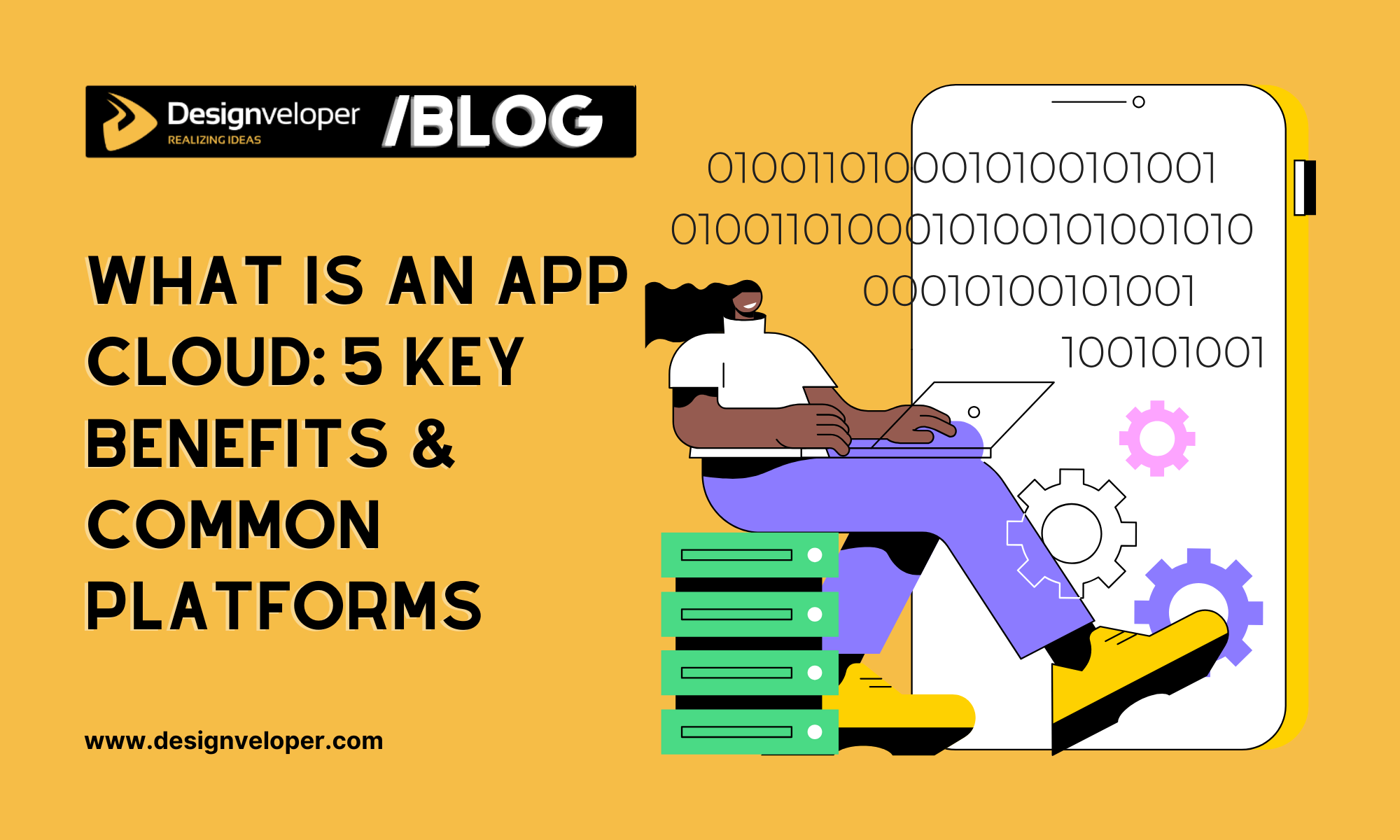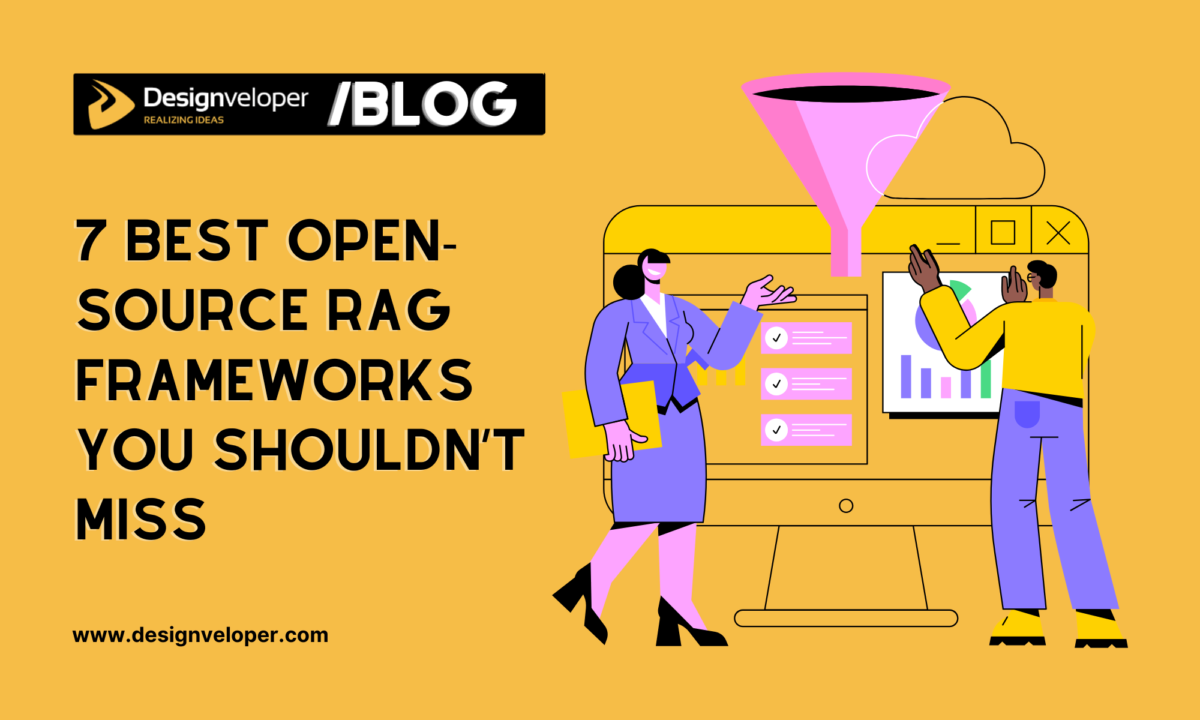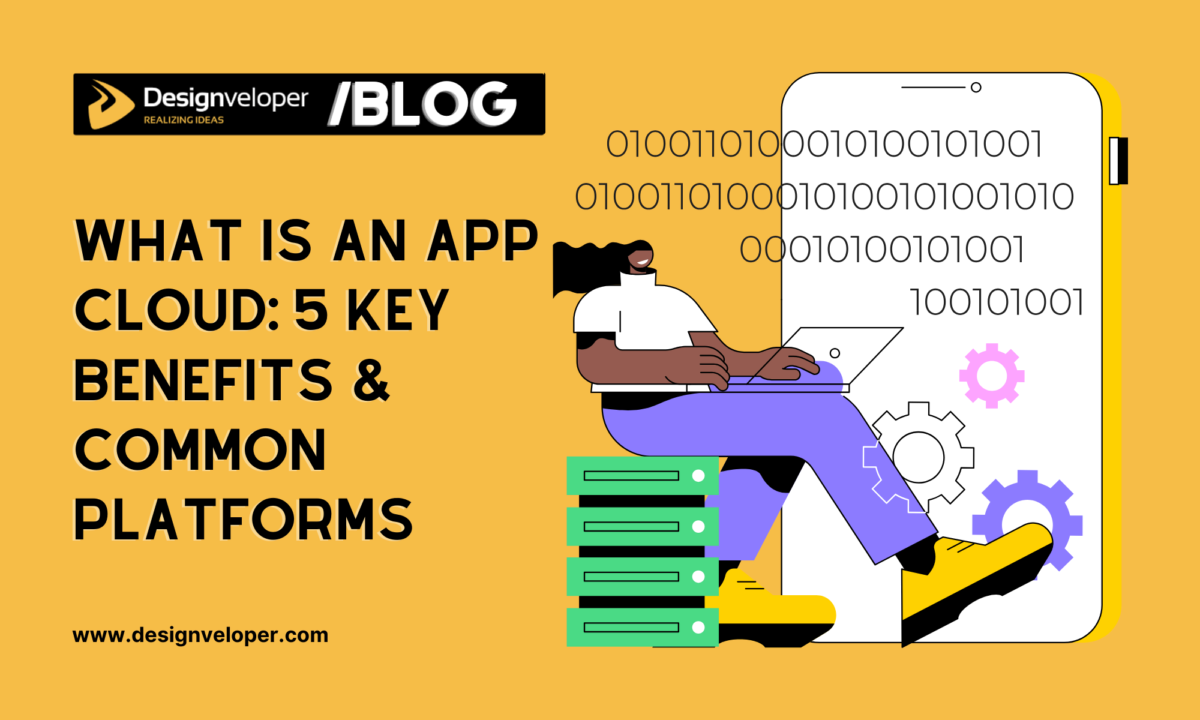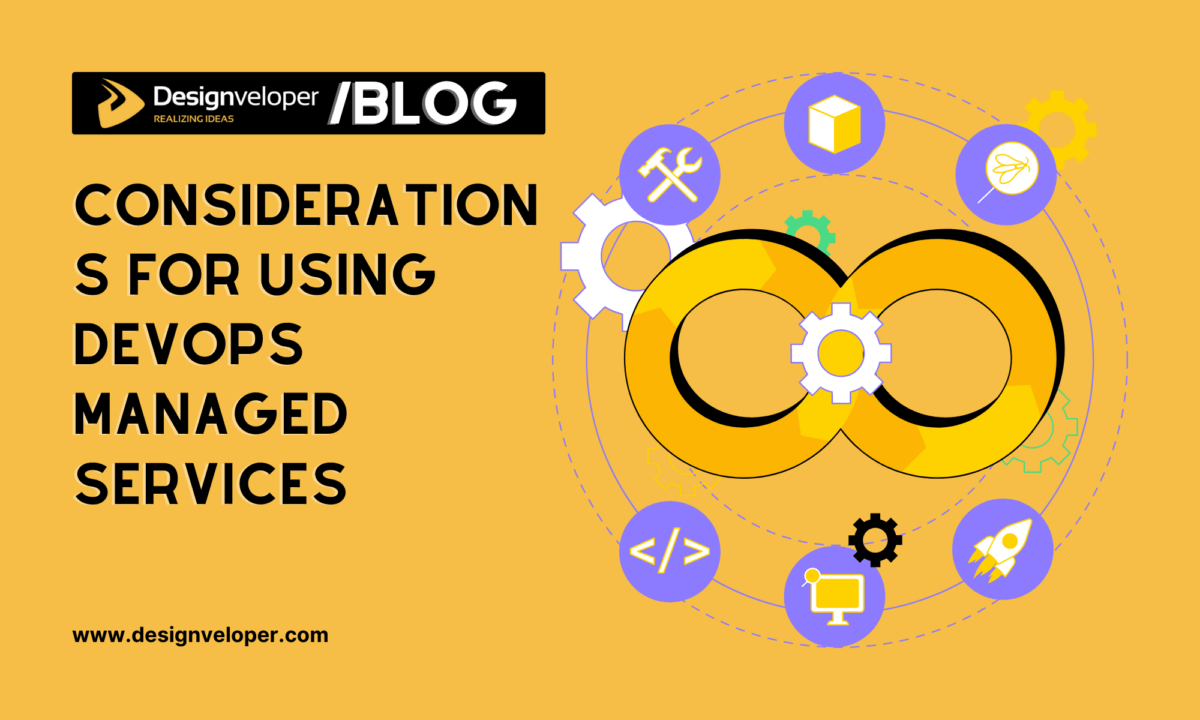
When you enter the keyword “app cloud” on search engines, you may receive some results about AppCloud, a cloud-based service commonly seen on Samsung and other Android devices. This specific feature recommends and installs some (possibly unwanted) apps based on your interests and behaviors. Perhaps you want to remove it from your Samsung smartphone due to its inconvenience.
But wait! This article doesn’t mention this “AppCloud.” Instead, we’re here to talk about “app clouds,” a broader term defining cloud computing services for app development. So if your company plans to create, build, and deploy applications on the cloud rather than local devices (e.g., desktop computers or smartphones), don’t skip this article. Here, we’ll give you all the necessary knowledge to answer the big question: “What is an app cloud as a platform?” Keep reading and discover!
What is an App Cloud?
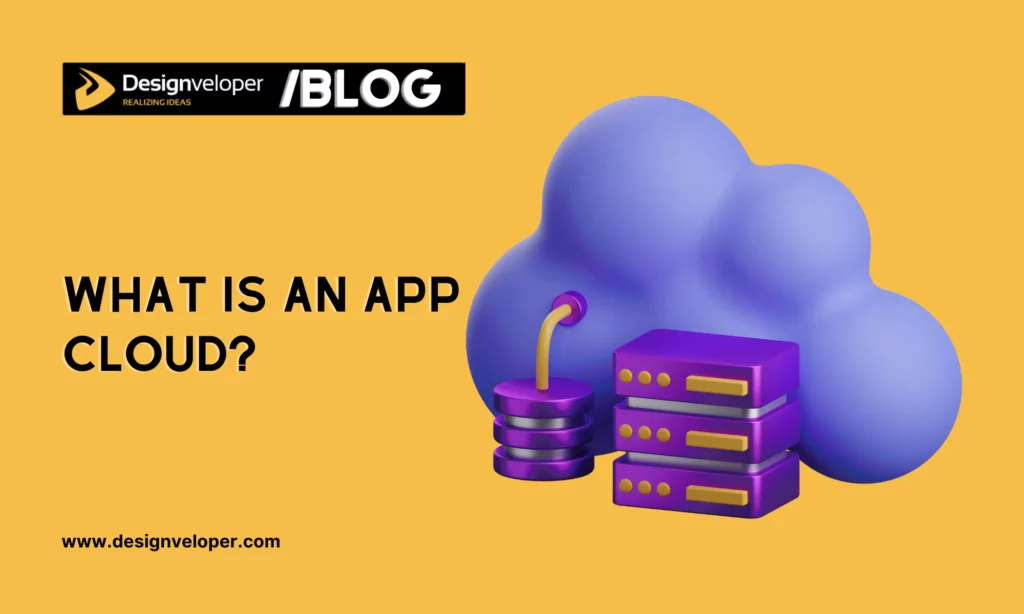
App clouds refer to cloud-based platforms that offer tools for the entire development of an app. In other words, they not only provide space to store and retrieve your app’s data but also offer infrastructure, services, and tools (e.g., programming languages, SDKs, or APIs) to develop and deploy applications.
Accordingly, these apps are commonly known as “cloud apps.” They run on remote servers instead of being installed locally on a specific device (e.g., smartphones). This capability allows users to access these apps anywhere through the Internet.
One typical example of an app developed on the cloud is Google Workspace. Even online banking apps, language learning apps (like Duolingo), and eCommerce apps (like Amazon) are all built and deployed on cloud platforms. These apps are different from traditional apps like Adobe Photoshop, the standalone Calculator app on iPhones, and embedded software. Accordingly, these traditional apps and their data aren’t hosted and accessed in the cloud.
To help you better understand “cloud apps,” let’s ask some questions below:
Q1: Are all apps using cloud services considered ‘cloud apps’?
No. Even when you use cloud services to store your app’s data, it doesn’t mean your app is cloud-based. The app, in this case, has the code running on a user’s device instead of relying on the cloud, as it uses cloud services only for backend needs (like data storage and retrieval). Meanwhile, cloud apps leverage all the cloud’s infrastructure and tools to build an app from A to Z.
Q2: How many types of app clouds are there?
App clouds are classified into different categories based on their services and deployment methods. Some common types we often see include public, private, and hybrid app clouds. Now, let’s find them out!
Public App Clouds
We all know public app clouds are platforms owned and managed by third-party service providers. In other words, the entire app development lifecycle is hosted and operated on a third-party server. According to Statista, the global market for public clouds will reach nearly $935 billion in 2025, dominated by Microsoft Azure and Amazon Web Services (AWS).
Normally, public cloud providers offer a wide range of services like Software as a Service (SaaS) or Infrastructure as a Service (IaaS). Among them, Platform as a Service (PaaS) is often referred to as “app clouds” as it gives developers a comprehensive platform to develop, test, and deploy apps without controlling the underlying infrastructure.
Private App Clouds
When people talk about “app clouds,” they mostly refer to public cloud platforms. However, there are some cases where large corporations like Meta create, deploy, and manage apps like Facebook on their own massive, private app cloud infrastructure. This app cloud provides better security and data control than public clouds.
Hybrid App Clouds
App clouds can be hybrid, combining public and private cloud resources to build, launch, and maintain apps.
Particularly, your company can use the scalable development services of a public cloud to develop your application. Then, you may deploy data or specific sensitive components on your own private cloud infrastructure. This ensures the app will comply with security and latency requirements.
Or else, your company can develop core features on private cloud infrastructure. Meanwhile, you may leverage public app clouds to build less sensitive components of the app or benefit from certain services (like advanced AI/ML tools or serverless computing options).
5 Common App Cloud Platforms
There are various public app clouds for you to choose from. Now, let’s discover the top five common ones:
1. Amazon Web Services (AWS)
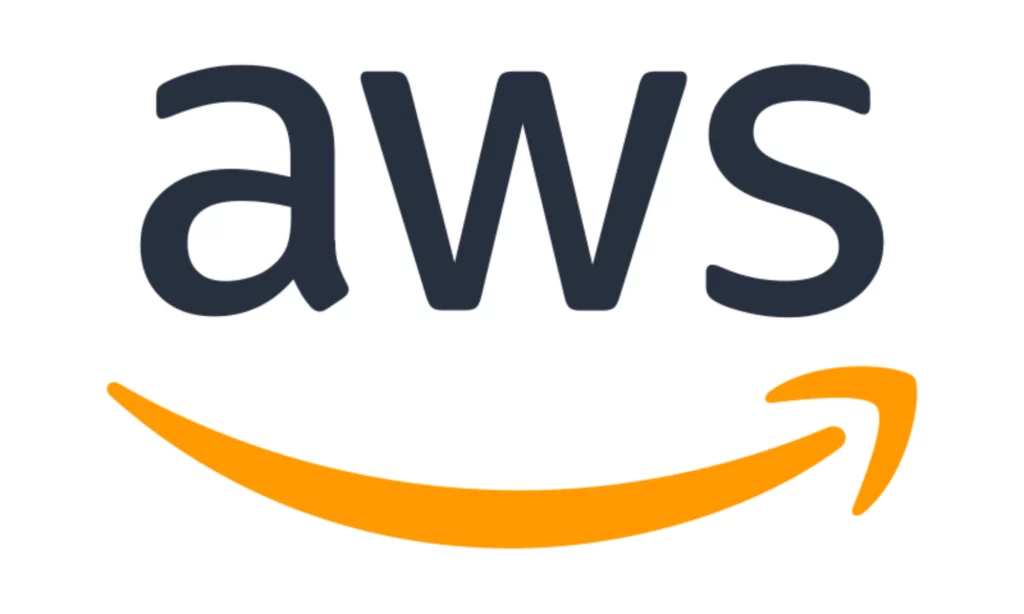
Created in 2006 as a part of Amazon, AWS offers a wide range of services to help build any app you want or move your existing app to the cloud. It has the deepest features within these services, from infrastructure technologies (e.g., storage or databases) to innovative ones (e.g., AI/ML, IoT, and data lakes & analytics). This allows you to choose the right tools to build different types of apps quickly and cost-effectively.
For example, AWS Lambda offers serverless functions for developers to run code without provisioning or controlling servers. Meanwhile, Amazon EC2 can scale up or down to deploy your server code easily on the cloud. You can also explore AWS Fargate basics, a serverless compute engine that lets you run containers without managing servers. Or else, you can leverage Amazon DynamoDB – a NoSQL database – to develop apps that need low latency and high scalability. Besides, services like AWS Amplify or AWS Elastic Beanstalk offer abundant tools and services to build, launch, and manage web and mobile apps seamlessly on AWS.
Whether you want to build mobile and web apps, enterprise apps, or complex IoT apps, AWS offers everything to turn your idea into a working solution.
2. Microsoft Azure
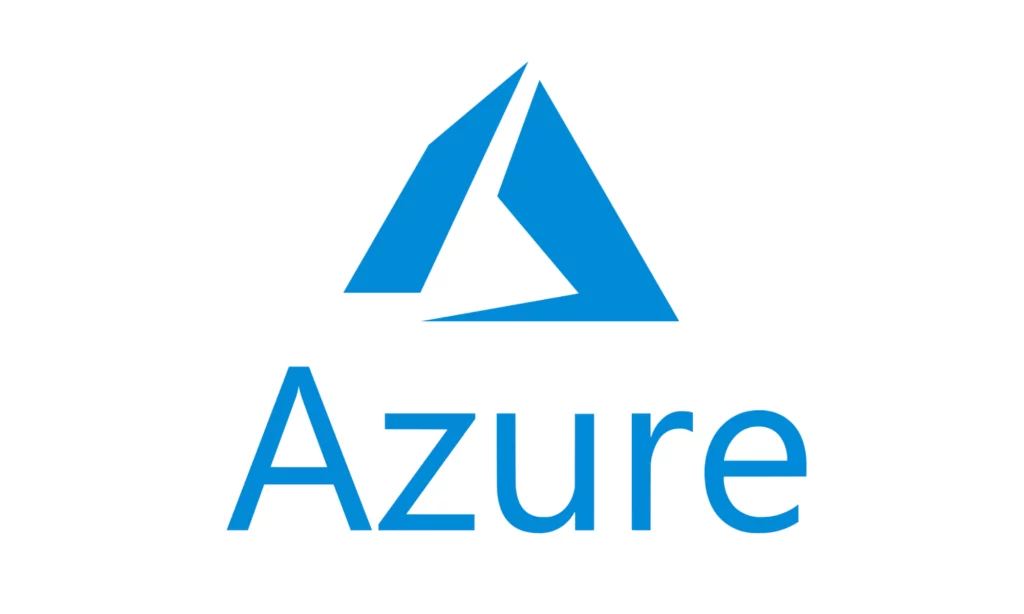
Microsoft Azure is another popular app cloud service. It provides a variety of features (like compute services, storage, databases, and even AI/ML capabilities) to support developers in building, launching, and managing apps effectively.
For example, Azure App Service offers a fully managed PaaS to develop, deploy, and scale web apps, mobile backends, and APIs. Meanwhile, Azure Kubernetes Service (AKS) enables you to create and manage containerized apps. Besides, Azure Functions enables you to develop robust apps using less code without managing sophisticated infrastructure. Microsoft Azure also offers a wide range of AI capabilities to develop intelligent apps at enterprise scale with intelligent cloud databases.
3. Google Cloud Platform (GCP)
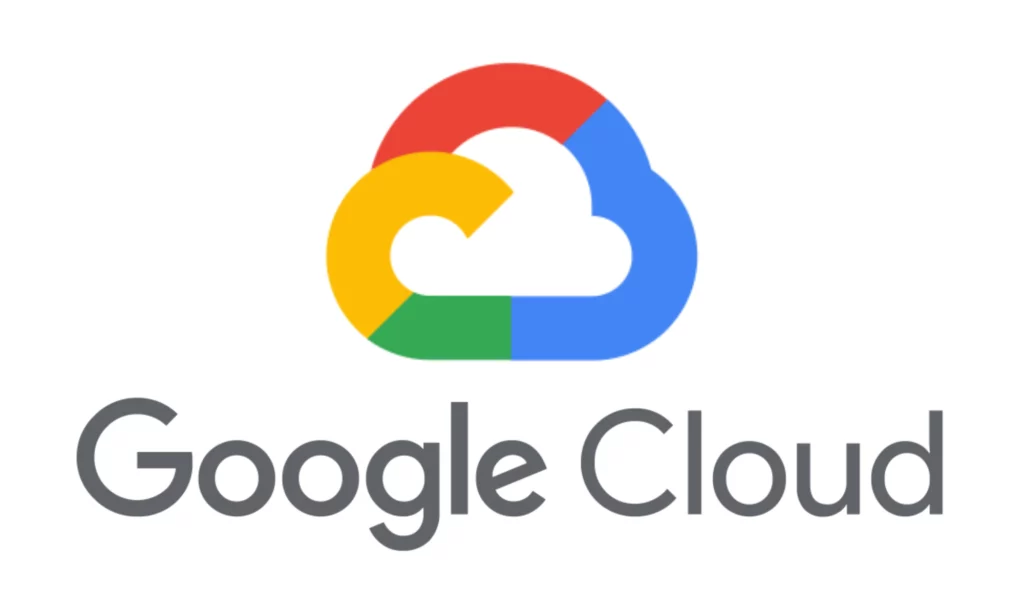
Google Cloud provides a comprehensive set of services and developer tools to support cloud-based app development. These services involve cloud computing, storage, databases, security, networking, and data analytics.
Typically, you can leverage Cloud Code to write, debug, and run cloud-native apps in the cloud or on local devices. Further, its Cloud Build functionality enables the continuous development, testing, and deployment of software in various environments and with different languages. Google Cloud also offers pre-built solution templates (e.g., core banking modernization, marketing analytics, and medical imaging suite) to build, deploy, and manage applications and workflows in a scalable and secure environment.
Further, this public app cloud also integrates Vertex AI, a fully managed AI platform to build AI agents and apps. Gemini products like Gemini Code Assist support developers in code generation, completion, and recommendations.
4. IBM Cloud
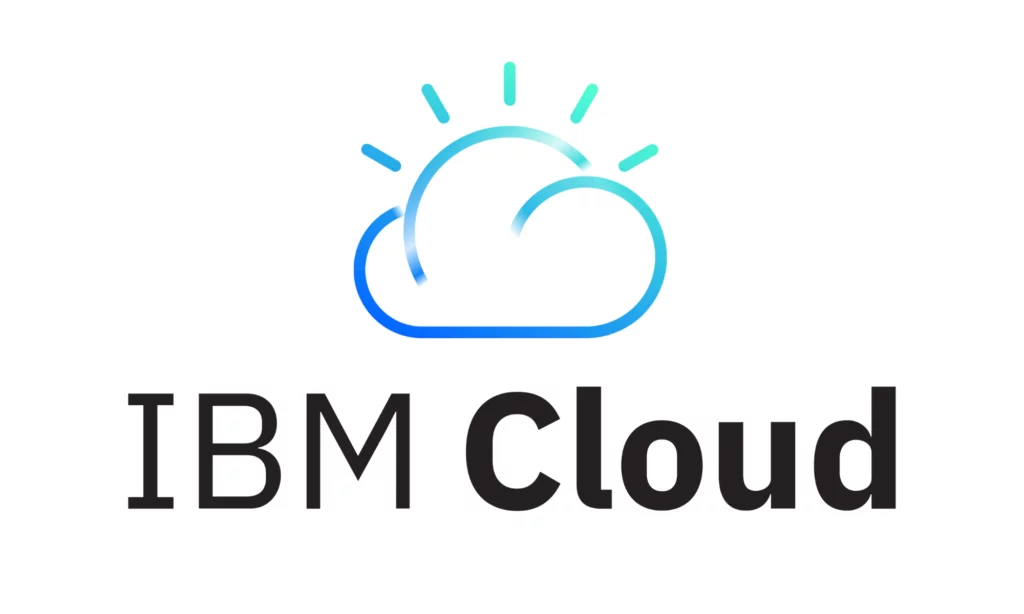
Like the mentioned clouds, IBM Cloud also comes with a suite of more than 170 products and services to build, deploy, and scale apps quickly. Whether you want to develop your own AI models, analyze large datasets, automate workflows, or deploy apps consistently across environments, IBM Cloud has the right features to realize your idea.
This cloud platform even integrates DevOps solutions to support the entire app development, from planning to monitoring. For example, IBM DevOps Plan uses GenAI capabilities to speed up project planning and workflow management. DevOps Build and IBM Cloud Continuous Delivery help monitor your source code with hosted git repositories and use automated delivery pipelines to build, test, and deliver your app repeatedly. Meanwhile, IBM Cloud SatelliteTM helps you launch and run applications consistently across different environments.
5. Heroku
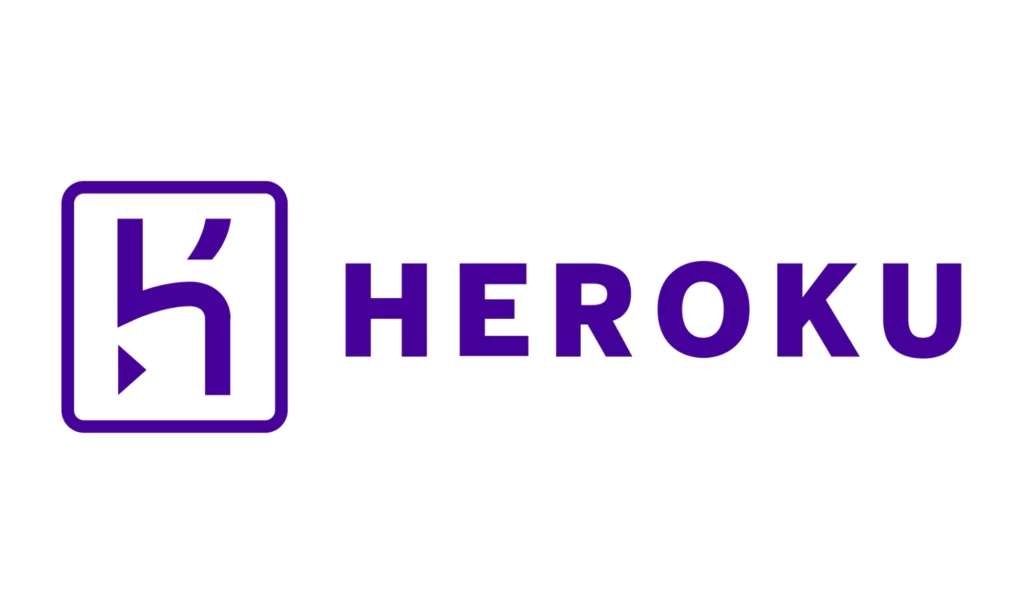
Heroku is a cloud-based PaaS for developers, businesses of all sizes, and even students to build, deploy, manage, and scale applications. It initially only supported the Ruby programming language, but now allows you to develop apps using other languages like PHP, Java, Go, Scala, .NET, and more. The platform also offers 380+ open-source third-party buildpacks to support other languages running on Linux.
As a powerful platform, Heroku offers a wide range of features and tools for the entire app-building cycle. For example, Heroku Runtime allows you to run apps inside smart containers called ‘dynos’. Or Heroku Developer Experience (DX) allows for the smooth development, deployment, and operation of apps, removing distractions caused by servers or infrastructure.
5 Key Benefits of Using App Clouds
Several research studies have indicated that the integration of cloud technologies has encouraged the global app development market to thrive. With various transformative benefits, deploying apps on the cloud has dominated the market recently. Accordingly, cloud deployment can:
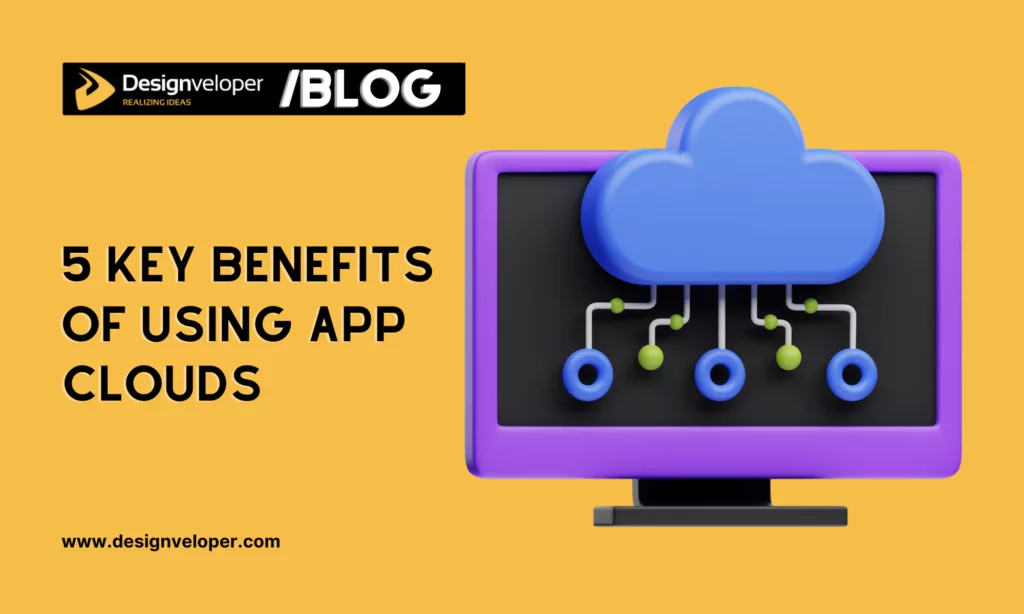
1. Save Costs
Building apps on cloud platforms is cost-effective. Particularly, you don’t need to pay the upfront costs for buying, installing, and maintaining physical infrastructure and hardware. Instead, you pay only for the resources (e.g., servers, databases, or networking components) you use. Especially when you plan to scale your app to meet evolving demands, you don’t need to pay extra for new hardware installation, which possibly impacts your existing infrastructure.
2. Offer Scalability
Cloud development and deployment allow you to scale your application’s resources easily based on demand without additional investment in new hardware or infrastructure. This allows your company to adapt promptly to market shifts and business growth. Further, cloud deployment removes a burden on managing the underlying infrastructure (like maintenance and continuous updates). Therefore, you and other developers can have more time to focus on app development itself.
3. Accelerate Time to Market
App clouds offer pre-configured environments, tools, and features for app development and deployment. With this high availability, your development team can provision resources to get you new applications and even updates to market faster. Besides, app clouds allow different team members to collaborate on app development remotely and shorten project timelines.
4. Enable Accessibility
Only with internet-connected computers, your development team can access cloud platforms and develop applications collaboratively. No matter where your team members live, they can conveniently get involved in building, deploying, and managing apps.
5. Provide Advanced Services
Cloud providers as AWS, Google Cloud, and Microsoft Azure are now integrating advanced services and tools for you to approach emerging technologies like AI/ML, blockchain, and IoT. With these services, you can smoothly build complex and advanced apps.
Conclusion: The Future of App Clouds
We don’t deny the inevitable benefits of on-premises app deployment, like complete control over your business data and strict compliance with security practices and privacy regulations. However, this model presents several challenges, like high expenses to install, manage, and monitor physical infrastructure. To save costs, speed up time-to-market, and increase competitiveness in today’s era, various companies have shifted their focus to cloud deployment models.
Popular providers like AWS or IBM are investing heavily in not only their services but also security measures to support seamless and secure app development and deployment. So, in the future, we predict that app clouds will constantly grow. And if you have an intention to develop cloud apps, we hope this article gave you all the basics to understand these clouds better.
In case you’re looking for a trusted, experienced partner to build, deploy, and run apps on the cloud, Designveloper is here to help! With our deep technical expertise and hands-on experience with AWS, we’ve delivered app projects successfully to clients across industries like finance, education, and healthcare. Share with us your app idea and receive a free estimation now!






Read more topics
You may also like




























